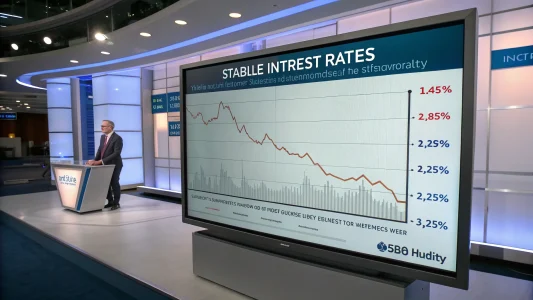Federal Reserve Chair Jerome Powell’s characterization of current monetary policy as “restrictive” has sparked debate among financial experts about potential damage to markets. A recent panel on ‘The Big Money Show’ examined the implications of the Fed’s stance and what it means for investors moving forward.
The discussion centered on Powell’s explicit acknowledgment that interest rates are now at levels designed to slow economic growth and combat inflation. This marks a significant shift in messaging from the central bank, which has maintained higher rates for longer than many market participants initially expected.
Market Reactions to Fed Policy
Panelists noted that markets have shown resilience despite the Fed’s tight monetary policy. Stock indices have performed well in recent months, even as the central bank has held rates at multi-year highs. This apparent contradiction has left some analysts questioning whether investors are properly accounting for the long-term effects of restrictive policy.
“The disconnect between Powell’s clear restrictive stance and market optimism creates a potentially dangerous situation,” one panelist warned. “Investors may be underestimating how long these conditions might persist.”
The discussion highlighted how different market segments have responded to the Fed’s approach. While technology stocks and other growth sectors have shown strength, interest-rate sensitive areas like real estate and utilities have faced more significant challenges.
Economic Indicators Under Scrutiny
The panel examined several key economic indicators that Powell and the Federal Reserve are monitoring to determine future policy moves:
- Inflation metrics, which have moderated but remain above the Fed’s 2% target
- Employment data, which has shown resilience despite higher rates
- Consumer spending patterns, which have begun showing signs of strain
- Housing market activity, which has slowed significantly under higher mortgage rates
These indicators present a mixed picture of the economy, making it difficult to predict when the Fed might pivot to a less restrictive stance. Several panelists expressed concern that Powell might maintain higher rates for too long, potentially triggering a sharper economic downturn than necessary.
Investor Strategies in a Restrictive Environment
Financial experts on the panel offered varying perspectives on how investors should position themselves while monetary policy remains tight. Some advocated for defensive positioning, suggesting a focus on quality companies with strong balance sheets and reliable cash flows.
“In this environment, companies with pricing power and low debt levels are better equipped to weather the restrictive conditions,” explained one market analyst on the panel.
Others suggested that certain sectors might benefit from the current policy environment, particularly financial institutions that can earn higher net interest margins in a high-rate setting. The panel also discussed the merits of fixed-income investments, which have become more attractive as yields have risen substantially.
“We haven’t seen bond yields this attractive in over a decade. For income-focused investors, this creates opportunities that simply didn’t exist during the zero-interest-rate era,” noted a fixed-income specialist during the discussion.
The timing of potential rate cuts emerged as a critical point of disagreement among panelists. Some believed the Fed would begin easing by mid-year, while others predicted restrictive policy would remain in place through the end of the year or beyond.
As markets continue to digest Powell’s messaging, investors face the challenge of balancing short-term opportunities against the risk of economic damage from prolonged restrictive policy. The panel concluded that careful sector selection and risk management will be essential strategies as this monetary policy cycle continues to unfold.
















